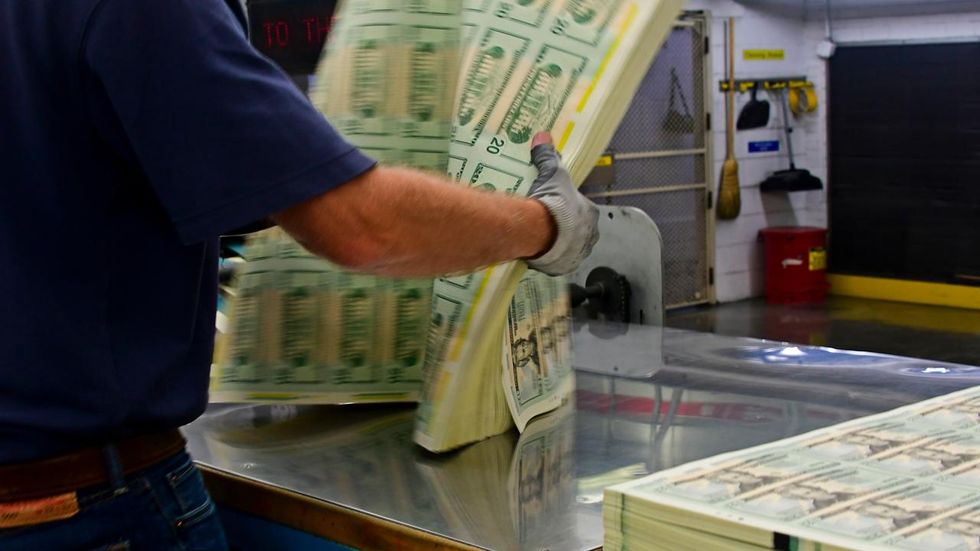Americans are riding the wave of an economic recovery, but some analysts are warning of a coming crash that could be the worst the nation has seen in 10 years.
What is this based on?
The 2008 crash was brought on by easy credit that crippled the financial markets. Today, a global debt of $247 trillion looms on the horizon an threatens to cause the next crash, experts said.
Many U.S. households have also faced a decade of debt brought on by lower wages. That, combined with national debt that has more than doubled – to $21 trillion – over the same time, could bring an abrupt halt to the current economic recovery.
“We think the major economies are on the cusp of this turning into the worst recession we have seen in 10 years,” Murray Gunn, head of global research at Elliott Wave International, told the New York Post.
“Should the [US] economy start to shrink, and our analysis suggests that it will, the high nominal levels of debt will instantly become a very big issue,” he added.
Analysts point to some of the reasons for their predictions:
- U.S. household debt of $13.3 trillion, more than the 2008 peak. Part of that is attributed to mortgage lending, which is at its nearly decade-ago level of $9 trillion-plus.
- Outstanding student loans have skyrocketed from $611 billion in 2008 to about $1.5 trillion today.
- Auto loans total nearly $1.25 trillion. The figure is more than the 2008 total. Additionally, credit card balances are as high as before the so-called Great Recession.
- Central bankers have flooded economies with “cheap money” resulting in $247 trillion in global debt, up from $177 trillion in 2008. The amount is about 2.5 times the size of the global economy.
How bad?
Economic commentator Peter Schiff, is predicting a “major economic downturn” as early as the end of Trump’s first term.
“We won’t be able to call it a recession, it’s going to be worse than the Great Depression,” Schiff told the New York Post. “The US economy is in so much worse shape than it was a decade ago.”
The beginning may come when defaults on large sums of debt create a tipping point, experts said. That would lead to a widespread reduction in spending and incomes.
“I think we are going to have a dollar crisis — you think the Turkish lira looks bad now, wait till you see when the dollar is imploding and we have a sovereign debt crisis in the US,” Schiff said. “The US government is going to be given a choice between defaulting on the debt, or else massive runaway inflation.”
The publication noted that not all of his predictions have materialized in the past.
Banks are also sounding the alarms. Goldman Sachs stated the U.S.’s fiscal outlook is “not good,” which could threaten the nation’s economic security in the next recession, the report stated.
Gunn said the deflationary spiral could be brutal.
“People will look to central banks to help them out, but the authorities will be found wanting,” Gunn told the New York Post. “Our prediction is that central banks will go from being feted for ‘saving the world’ in 2008 to being vilified for being impotent in the coming deflationary crash.”




